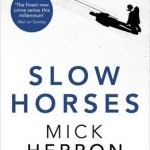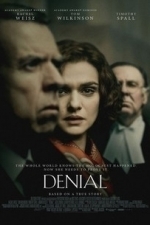Search
Search results
MusicCritics (472 KP) created a video about track Thriller by Michael Jackson in Thriller by Michael Jackson in Music
Sep 13, 2017
Adam Colclough (3 KP) rated Slow Horses in Books
Mar 12, 2018
The awkward squad to the rescue
Slough House is the place where the secret service dumps those operatives who don’t’ make the grade. A bureaucratic limbo as far away from the glamourous world inhabited by James Bond as Biarritz is from the outer moons of Saturn.
The crew of misfits incarcerated there under the command of the objectionable Jackson Lamb are called back to active service when a terrorist gang kidnap a teenager and threaten to behead him live online. Suddenly the awkward squad are players in a deadly game with only one possible winner.
In this book, first published in 2010 and part of an award-winning quartet, Mick Herron delivers all the thrills you would expect as he pits his cast of oddballs against a chillingly plausible enemy.
Spy novels often describe hidden worlds as a way of talking about the one with which we are all familiar. In the Sixties Le Carre wrote about a secret service that resembled nothing so much as minor Oxbridge college down on its luck but clinging tightly to past glories. Any similarity to a Britain that for all the promises of wonders delivered by the ‘white heat of technology’ was starting to look decidedly seedy was entirely intentional.
Mick Herron writes about a service that has been capture by bean counters and career obsessed middle managers. Drowning in paperwork, stymied by procedure and inclined to try and be a little too clever for its own good.
He also creates delightfully complex characters, the ‘slow horses’ of the title may all be difficult individuals, but that gives them fears and failings that make them infinitely more interesting than monochrome supermen like Bond or Bourne. By the book’s end he even manages to provide them with if not redemption than the unexpected feeling they may have a purpose after all.
The best spy novels are always about more than just chasing after a McGuffin. This book is unafraid to look at troubling ideas and to present characters who don’t tick the boxes of traditional heroism. That puts it in the running to become a classic of the genre.
The crew of misfits incarcerated there under the command of the objectionable Jackson Lamb are called back to active service when a terrorist gang kidnap a teenager and threaten to behead him live online. Suddenly the awkward squad are players in a deadly game with only one possible winner.
In this book, first published in 2010 and part of an award-winning quartet, Mick Herron delivers all the thrills you would expect as he pits his cast of oddballs against a chillingly plausible enemy.
Spy novels often describe hidden worlds as a way of talking about the one with which we are all familiar. In the Sixties Le Carre wrote about a secret service that resembled nothing so much as minor Oxbridge college down on its luck but clinging tightly to past glories. Any similarity to a Britain that for all the promises of wonders delivered by the ‘white heat of technology’ was starting to look decidedly seedy was entirely intentional.
Mick Herron writes about a service that has been capture by bean counters and career obsessed middle managers. Drowning in paperwork, stymied by procedure and inclined to try and be a little too clever for its own good.
He also creates delightfully complex characters, the ‘slow horses’ of the title may all be difficult individuals, but that gives them fears and failings that make them infinitely more interesting than monochrome supermen like Bond or Bourne. By the book’s end he even manages to provide them with if not redemption than the unexpected feeling they may have a purpose after all.
The best spy novels are always about more than just chasing after a McGuffin. This book is unafraid to look at troubling ideas and to present characters who don’t tick the boxes of traditional heroism. That puts it in the running to become a classic of the genre.
Bob Mann (459 KP) rated Denial (2016) in Movies
Sep 29, 2021
Jewry Trial.
It’s the mid-90’s and Deborah Lipstadt (Rachael Weisz, “The Lobster“), an American professor of Holocaust studies at a US university has written a book naming and shaming David Irving (Timothy Spall, “Mr Turner”) as a Nazi-apologist who denies that the Holocaust ever happened. Filing a law suit against Penguin Books and Lipstadt in the UK, Lipstadt chooses to fight rather than settle and takes the case to the High Courts in a much publicised trial.
Help is required and Lipstadt is assigned a hot-shot solicitor (if that’s not an oxymoron) in the form of Anthony Julius (Andrew Scott, “Sherlock”) and top barrister Richard Rampton (Tom Wilkinson, “Selma“). The stage is set for an epic legal battle that will establish not just legal precedent but also historical precedent affecting the entire Jewish people.
This film’s trailer really appealed to me, and I was looking forward to this film. And that view clearly also got through to people of my age bracket (and older) since the cinema was pretty full. But ultimately I was disappointed by the film.
But first the good points.
The cinematography by Haris Zambarloukos (“Thor”, “Mamma Mia”) is memorable, particularly for the Auschwitz tour which is done in an impressively bleak way on an astoundingly bleak winter’s day.
Andrew Scott, so woefully miscast as “C” in “Spectre“, here is a nice shoo-in for the cocksure but aloof expert. And Tom Wilkinson, who can seldom put a movie foot wrong, is also perfectly cast as the claret-swigging defence-lead: passionless and analytical even when facing the horrors of a trip to Auschwitz.
Timothy Spall’s Irving is well portrayed as the intelligent and articulate – albeit deluded – eccentric he no doubt is.
There are also some nice cameo performances, including John Sessions (“Florence Foster Jenkins“) as an Oxbridge history boffin and Mark Gatiss (“Sherlock”) as an Auschwitz expert.
However, these positives don’t outweigh the big negative that the broader ensemble cast never really gels together well. The first time this is evident is in an office meeting of the defence team where the interactions have a sheen of falseness about them that is barely hidden behind some weak script and forced nervous laughter. Tea can’t help.
In particular, attractive Kiwi actress Caren Pistorius (“The Light Between Oceans“) seems to have been given a poor hand to play with as the junior member of the team. A late night interaction with her boyfriend, who whinges at her for having to work late, seems to be taken from a more sexist age: “the 70’s called and they want their script back”.
None of this is helped by Rachel Weisz, who I’m normally a fan of, but here she is hindered by some rather dodgy lines by David Hare (“The Reader”) and an unconvincing (well, to me at least) New York accent. For me I’m afraid she just doesn’t seem to adequately convey her passion for the cause.
While the execution of the court scenes are well done, the film is hampered by its opening five words: “Based on a True Story”. This is something of a disease at the moment in the movies, and whilst in many films (the recent “Lion” for example) the story is in the journey rather than the result, with “Denial” the story is designed to build to a tense result that unfortunately lacks any sort of tension – since the result is pre-ordained.
This is all a great shame, since director Mick Jackson (“LA Story”, in his first feature for nearly 15 years) has the potential here for a great movie. Perhaps a more fictionalised version (“vaguely based on a true story”) might have provided more of a foundation for a better film?
Help is required and Lipstadt is assigned a hot-shot solicitor (if that’s not an oxymoron) in the form of Anthony Julius (Andrew Scott, “Sherlock”) and top barrister Richard Rampton (Tom Wilkinson, “Selma“). The stage is set for an epic legal battle that will establish not just legal precedent but also historical precedent affecting the entire Jewish people.
This film’s trailer really appealed to me, and I was looking forward to this film. And that view clearly also got through to people of my age bracket (and older) since the cinema was pretty full. But ultimately I was disappointed by the film.
But first the good points.
The cinematography by Haris Zambarloukos (“Thor”, “Mamma Mia”) is memorable, particularly for the Auschwitz tour which is done in an impressively bleak way on an astoundingly bleak winter’s day.
Andrew Scott, so woefully miscast as “C” in “Spectre“, here is a nice shoo-in for the cocksure but aloof expert. And Tom Wilkinson, who can seldom put a movie foot wrong, is also perfectly cast as the claret-swigging defence-lead: passionless and analytical even when facing the horrors of a trip to Auschwitz.
Timothy Spall’s Irving is well portrayed as the intelligent and articulate – albeit deluded – eccentric he no doubt is.
There are also some nice cameo performances, including John Sessions (“Florence Foster Jenkins“) as an Oxbridge history boffin and Mark Gatiss (“Sherlock”) as an Auschwitz expert.
However, these positives don’t outweigh the big negative that the broader ensemble cast never really gels together well. The first time this is evident is in an office meeting of the defence team where the interactions have a sheen of falseness about them that is barely hidden behind some weak script and forced nervous laughter. Tea can’t help.
In particular, attractive Kiwi actress Caren Pistorius (“The Light Between Oceans“) seems to have been given a poor hand to play with as the junior member of the team. A late night interaction with her boyfriend, who whinges at her for having to work late, seems to be taken from a more sexist age: “the 70’s called and they want their script back”.
None of this is helped by Rachel Weisz, who I’m normally a fan of, but here she is hindered by some rather dodgy lines by David Hare (“The Reader”) and an unconvincing (well, to me at least) New York accent. For me I’m afraid she just doesn’t seem to adequately convey her passion for the cause.
While the execution of the court scenes are well done, the film is hampered by its opening five words: “Based on a True Story”. This is something of a disease at the moment in the movies, and whilst in many films (the recent “Lion” for example) the story is in the journey rather than the result, with “Denial” the story is designed to build to a tense result that unfortunately lacks any sort of tension – since the result is pre-ordained.
This is all a great shame, since director Mick Jackson (“LA Story”, in his first feature for nearly 15 years) has the potential here for a great movie. Perhaps a more fictionalised version (“vaguely based on a true story”) might have provided more of a foundation for a better film?

